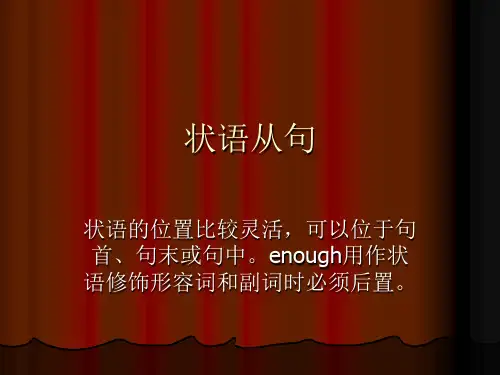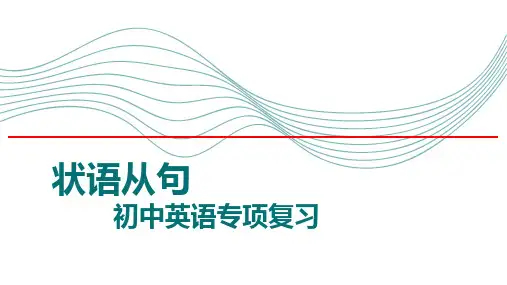动词不定式(to do)作状语
• (1)作目的状语,用in order to或so as to • In oder to improve our English, we need to practice more. • (2)作结果状语,常用结构be enough to(足够的),too...to...(太…而不
• personally speaking 就个人而言
talking/speaking of... (谈及……);
• judging by/from... (根据……判断);
given that... (考虑到……);
Thank you for watching !
ቤተ መጻሕፍቲ ባይዱ
能),only to(意料之外的结果) • He hurried to the bus stop,only to find that the bus had already gone. • 他急匆匆赶到车站,结果发现公交车已经走了。
• (3)作原因状语,常与形容词连用,如glad,happy,frightened,surprised等。 • I was frightened to find that in front of my door sat a dog.发现门前坐着
一只狗,我很害怕。
独立成分作状语
• 独立成分作状语(通常位于句首,有逗号隔开),其形式不受前后文的影响。常用 的有:
• considering... (鉴于,考虑到);
supposing that... (假定……);
• generally speaking (总的来说);
providing that... (如果……);
状语的用法
Adverbial










